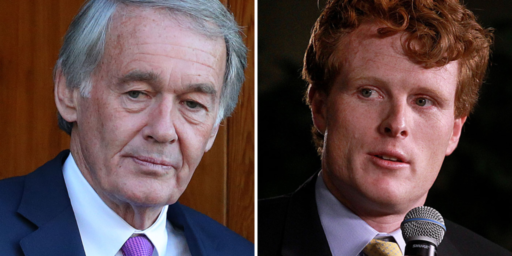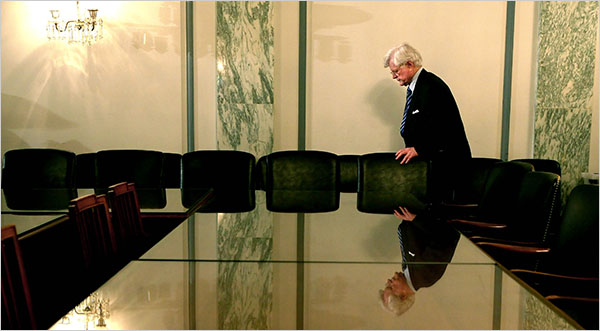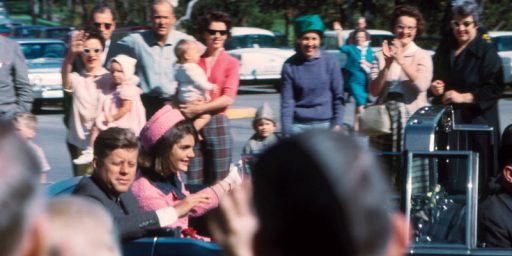High Court Upholds Block of Web Porn Law
AP — High Court Upholds Block of Web Porn Law
NYT — Justices Uphold Block of Web Porn Law but Send Case Back
MSNBC — Justices block Internet porn law
The Supreme Court ruled Tuesday that a law meant to punish pornographers who peddle dirty pictures to Web-surfing kids is probably an unconstitutional muzzle on free speech. The high court divided 5-to-4 over a law passed in 1998, signed by then-President Clinton and now backed by the Bush administration. The majority said a lower court was correct to block the law from taking effect because it likely violates the First Amendment.
The court did not end the long fight over the law, however. The majority sent the case back to a lower court for a trial that could give the government a chance to prove the law does not go too far. The majority, led by Justice Anthony M. Kennedy, said there may have been important technological advances in the five years since a federal judge blocked the law. Holding a new trial will allow discussion of what technology, if any, might allow adults to see and buy material that is legal for them while keeping that material out of the hands of children.
Justices John Paul Stevens, David H. Souter, Clarence Thomas and Ruth Bader Ginsburg agreed with Kennedy.The American Civil Liberties Union and other critics of the antipornography law said that it would restrict far too much material that adults may legally see and buy, the court said. The law, which never took effect, would have authorized fines up to $50,000 for the crime of placing material that is “harmful to minors” within the easy reach of children on the Internet. The law also would have required adults to use access codes and or other ways of registering before they could see objectionable material online.
For now, the law, known as the Child Online Protection Act, would sweep with too broad a brush, Kennedy wrote. “There is a potential for extraordinary harm and a serious chill upon protected speech” if the law took effect, he wrote. Kennedy said that filtering software “is not a perfect solution to the problem of children gaining access to harmful-to-minors materials.” He said that so far, the government has failed to prove that other technologies would work better.
Interesting. No word if terrorists from Afghanistan have a right to access porn from Guantanimo.
While I agree that applying child-appropriate standards to content viewed by adults is almost certainly a restriction on speech, it’s not quite clear to me how a fluctuating technological state-of-the-art has much bearing on the Constitution. Either people have a speech right to publish these materials on the web or they don’t. Under the reasoning described by the majority, the government could conceivably be dragged into court every time a new piece of software comes on the market. That’s not a good solution.
Full text of the opinion: Ashcroft vs. ACLU [PDF]
Other blog reactions:
- Michael Froomkin: “The Ashcroft v. ACLU 5-4 is going to put a lot of pressure on people to mandate internet architectures that are filtering-friendly. Although they don’t have to be privacy-destroying technologies, they tend to be.”
- Jeff Jarvis: “[I]f the Court protects free speech against even pornography and children, surely it will protect free speech against the indecent indecency legislation about to be signed by Bush.” [Howard Stern will be pleased. -ed.]
- more to come. . . [Paging Prof. Volohk….]
And, of course, the obligatory Clarence Thomas bashing:
- Roger Ailes: “But shouldn’t Clarence have recused himself … at least to the men’s room?” [He does provide the deciding vote. -ed.]
- tbogg: “Sometimes a porn clown has to do what a porn clown has to do…”
One should note that, two days in a row, he and Antonin Scalia were on opposite sides in major cases.






The point on the technology bit is that when it comes to the First Amendment, the government has to show that its regulations are the “least restrictive means” of achieving its results. Kennedy’s point is that if commercially available technology is more effective than the regulation, than the regulation is not the “least restrictive means” of achieving the goal of protecting minors.
Alex,
I’ve seen that applied to demonstrative speech (draft card burning and such) but never to obscenity cases. The problem is that computer technology changes so fast that literally every such case would be moot by the time it worked its way through the courts, since the government could never prove that the status quo at the point the case started was still the standard.
Further, it’s entirely unclear to me how software would serve the govt’s purpose here, since every user wouldn’t have it, can’t afford it, and so on.